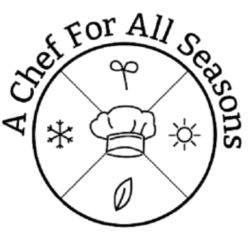TLDR: Starting a hospitality career can feel overwhelming—especially when no one teaches you how to job hunt effectively. This guide breaks down what hospitality students and new chef graduates need to know to get hired, build experience, and avoid job-search burnout.
Introduction
In hospitality, getting your first job isn’t about luck—it’s about knowing where to look, who to trust, and how to present your skills. Whether you’re just out of culinary school or still studying, this guide offers insider insight to help you land real opportunities—not just unpaid “experience.”
Table of Contents
- Understanding the UK Hospitality Job Market
- When Should You Start Looking?
- Building a CV That Speaks Their Language
- Where to Find Chef Jobs That Actually Pay
- Interview Tips for First-Time Applicants
- Common Pitfalls and How to Avoid Them
- Freelance, Temp, or Full-Time: What’s Best for You?
- How to Use The Chef Network as a Student or Graduate
- Conclusion
- FAQs
1. Understanding the UK Hospitality Job Market
Why does experience matter so much—even for entry-level roles? Because many kitchens run lean. Head chefs want staff who can slot in fast. But there are still roles designed for learners—you just need to know where they’re hiding.
What employers value most right now:
- Reliability
- Willingness to learn
- Practical experience (even short stints or student placements)
Pro tip: Kitchens are evolving. More employers are open to hiring passionate newcomers—especially through niche platforms like ours that focus on hospitality.
2. When Should You Start Looking?
Answer: Sooner than you think. You don’t need to wait until graduation. Many employers will consider part-time student chefs or those nearing completion of a diploma.
Stage
| Stage | What to Do |
|---|---|
| 6–12 months before graduation | Set up your CV and profile on a hospitality job board. Start networking. |
| 3–6 months out | Begin applying for part-time or seasonal roles. |
| 1–2 months out | Target permanent roles and apprenticeships. Interview often. |
3. Building a CV That Speaks Their Language
Forget the academic CV format. In hospitality, it’s all about clear skills and quick reads.
Must-haves on your CV:
- Knife skills, station experience, or FOH basics
- Work trials, pop-ups, and events
- Hygiene certificates or allergen awareness
- Availability (especially evenings/weekends)
Tip: Keep it one page. Add a 2–3 line personal summary focused on what kind of role you’re after and why.
4. Where to Find Chef Jobs That Actually Pay
General job boards waste your time. They mix hospitality roles with irrelevant posts, and many listings are out of date.
Better options:
- This platform – focused solely on hospitality jobs
- Local restaurant groups’ websites
- Trusted chef recruitment agencies
- Word-of-mouth (but only if it’s paid)
Avoid:
- Roles offering “exposure” instead of wages
- Unpaid trial shifts longer than a few hours
- Listings with vague job descriptions
5. How to Approach Your First Applications
When applying, tailor your approach:
- Apply to roles that suit your availability: Be upfront about your part-time or holiday limits.
- Highlight relevant skills: Even if you haven’t worked in a kitchen, include knife skills, teamwork, or customer service experience.
- Keep applications short and confident: A paragraph or two on why you’re eager and what you can do is enough.
Bonus tip: Don’t apply to everything. Apply to jobs that match your current level and where you can realistically grow.
6. How to Avoid Low-Paying or Unfair Jobs
Not all jobs are good jobs—especially when you’re new.
Watch out for:
- Unpaid trials over 1–2 hours
- Jobs with no clear pay or shift info
- Employers who don’t reply or ghost after interviews
Use platforms like The Chef Network, which actively removes jobs that don’t meet fair standards. Every listing is vetted.
7. Freelance, Temp, or Full-Time: What’s Best for You?
Each option has pros and cons—especially at the start of your career.
- Freelance: Great for variety and quick earnings. Not ideal for building long-term mentor relationships.
- Temp: Gets your foot in the door. Might not lead to full-time unless you stand out.
- Full-time: Offers training and progression. Harder to balance with studies.
Use your goals to choose: Want stability? Aim for full-time. Need flexibility? Try temp or freelance via our site.
8. How to Use The Chef Network as a Student or Graduate
We’re more than a job board—we’re a career ecosystem.
Here’s how you can stand out:
- Create a profile that shows your skills, certificates, and availability
- Apply to student-friendly listings with fair wages
- Join our community to get advice from working chefs
- Post availability for freelance or part-time gigs
Real story: One of our users went from student to sous-chef in 18 months—just by staying visible and active on this platform.
Conclusion
The student and new graduate guide to job search isn’t just about landing a role—it’s about finding the right fit for your first steps in hospitality. With the right tools, platforms, and mindset, you can turn your passion into a career—and skip the burnout, unpaid work, and guesswork.
Join our community of hospitality professionals. Whether you’re looking for your first gig, hiring junior chefs, or growing your freelance brand—this site helps you connect faster, smarter, and with confidence.
When should hospitality students start applying for jobs?
Start 6–12 months before graduation. Build your CV early and apply for part-time, seasonal, or entry-level roles as you study.
How do I write a hospitality CV with no experience?
Highlight kitchen skills, events, placements, and certifications. Keep it one page with a short personal summary showing your passion and availability.
What should students avoid when job hunting in hospitality?
Avoid unpaid trials over 1–2 hours, vague listings, and roles offering “exposure” instead of wages. Use trusted platforms with vetted listings.












